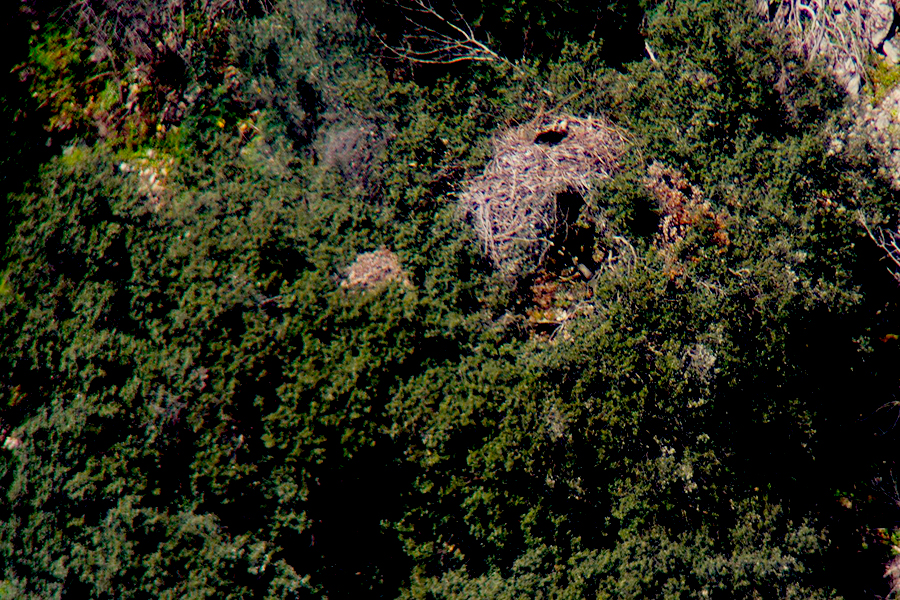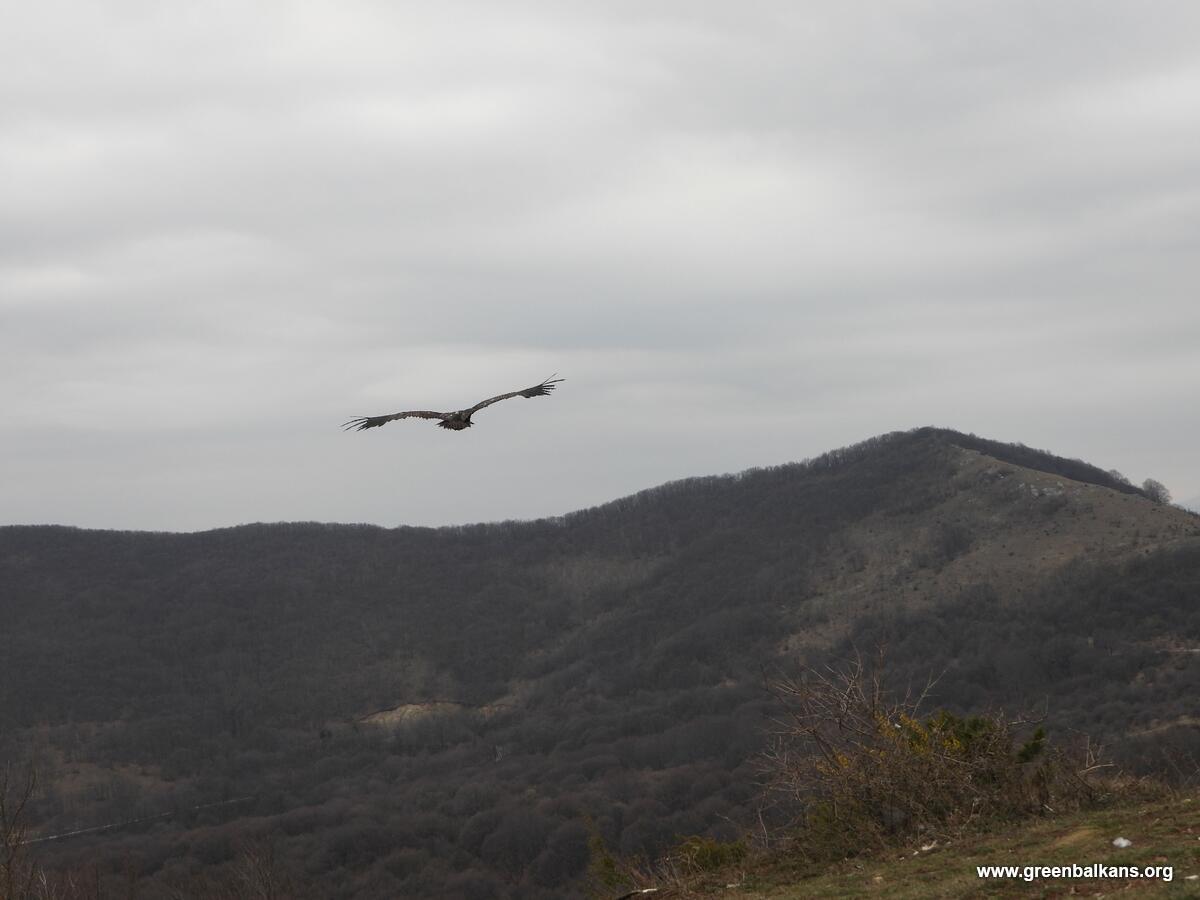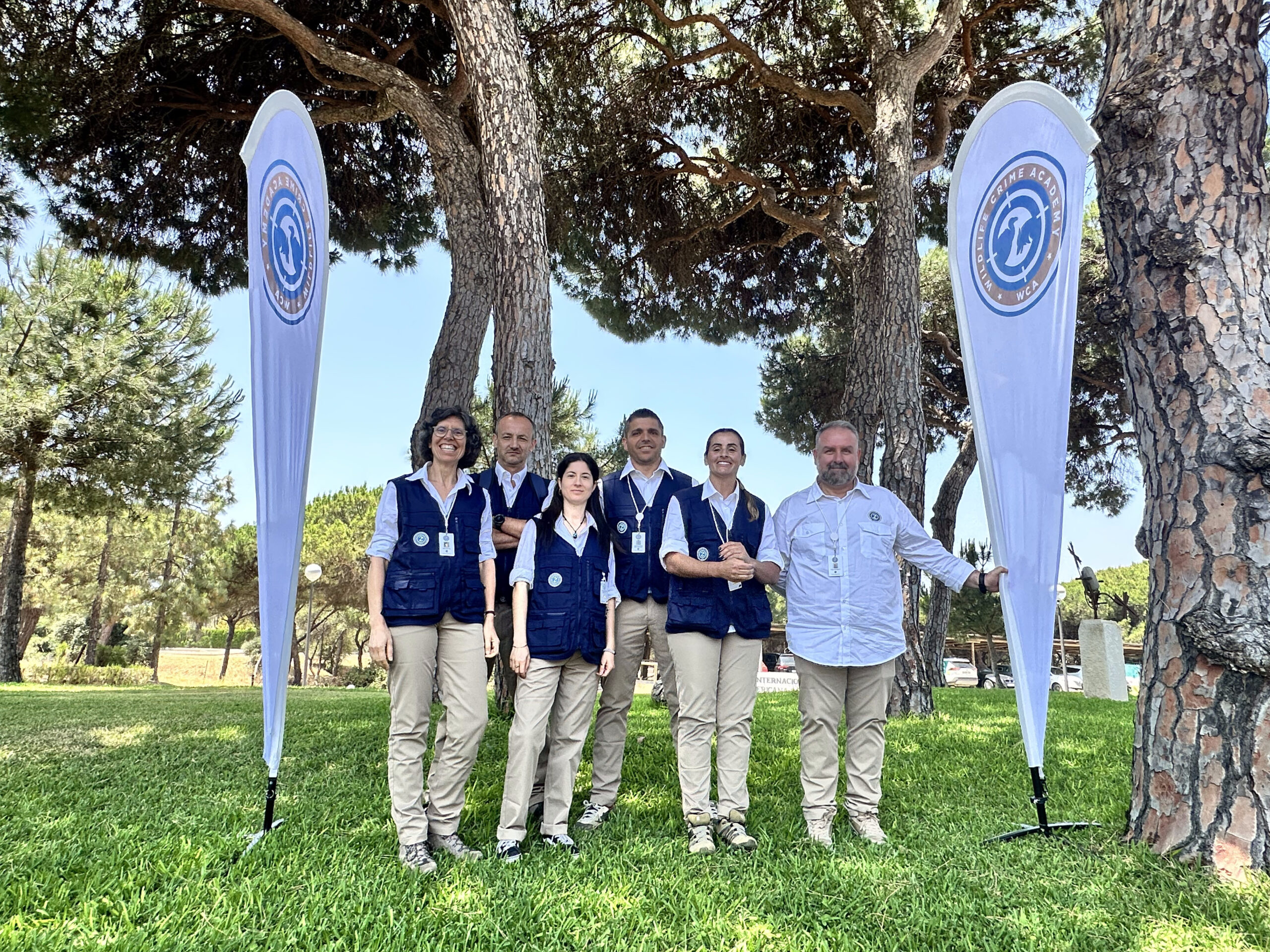During the 2024 breeding season, the LIFE Aegypius Return project team observed optimistic activities and made an exciting discovery while monitoring the smallest and most fragile Cinereous Vulture colony in Portugal, situated in the Douro International region.

Breeding behaviour confirmed for the existing nests at the Douro International
At the beginning of February, as part of the LIFE Aegypius Return project, project partners Palombar began monitoring the 2024 breeding season of the only three established Cinereous Vulture pairs in the “Douro International and Águeda Valley” Natura 2000 Special Protection Area, partially covered by the Douro International Nature Park (PNDI).
During their field visit, the Palombar team confirmed breeding activity, with the three nests occupied, and Cinereous Vulture pairs transporting material to them and arranging the structures. Over the next few days, it was estimated that the only egg that the female of each pair lays each breeding year would probably be laid.
In order to avoid any disturbance to the breeding pairs, monitoring was carried out at a distance of around 1600 metres, using optical equipment. The prospecting and monitoring work aims to analyse the movements and breeding success of this vulture species, which is the largest in Europe and is threatened with extinction, as well as detect any new pairs that may have been established in the PNDI area. In addition, it will make it possible, in the medium term, to monitor the population trends of this breeding nucleus and other demographic parameters such as productivity and mortality and, more broadly, to assess the impact of the project’s actions on the target species.


Fourth Cinereous Vulture nest discovered in the Douro International
As monitoring progressed in the coming weeks, Palombar’s field team confirmed that the three pairs in the Douro International Nature Park laid their eggs and were incubating them. But they also uncovered something else – a fourth Cinereous Vulture nest. Initially, an adult vulture was found in the new nest, followed by observations of a pair completing its construction and engaging in mating behaviour. This is an important discovery, given that this is the smallest Cinereous Vulture colony in Portugal, a species that only returned to nest in the Douro International in 2012, when the first nesting pair was recorded.
“Since this is a young pair (one of the individuals is still a sub-adult) there may not be breeding success this year, but in the next few weeks it will be possible to confirm that the only egg the species lays each breeding season has been laid and incubated. However, whether or not breeding success is confirmed this year, the fact that there is a new pair nesting in the Douro International is already excellent news.”
– Iván Gutiérrez, biologist at Palombar
In the coming weeks, Palombar’s nature conservation and biodiversity monitoring technicians will continue to monitor new areas where the Cinereous Vulture may be nesting, thus increasing the available knowledge on the species’ breeding individuals in this protected area.
Promoting colony growth at the Douro International
Spanning over 62,000 hectares, the Douro International e Vale do Águeda protected area in Portugal’s northeast is home to diverse wildlife, including the endangered Cinereous Vulture. To support the breeding success of the species, local teams from Associação Transumância e Natureza (ATN) and Palombar will undertake several key initiatives. These include constructing and repairing nests, monitoring the breeding season, clearing shrubs to reduce fire risk, recovering agricultural land patches, establishing supplementary feeding stations, and promoting connectivity among colonies.
Moreover, the Douro International site will receive a Cinereous Vulture acclimatisation cage, essential for the soft release of rehabilitated individuals from fauna recovery centres. This will reinforce the population and foster colony growth. Additionally, anti-poisoning dog units will operate in the Douro following the establishment of two new units within the National Republican Guard – GNR in Portugal.
About the LIFE Aegypious Return project

The LIFE Aegypius Return project aims to consolidate the return of the Cinereous Vulture to Portugal and western Spain. It is co-funded by the European Union’s LIFE programme. Its success depends on the involvement of all the relevant stakeholders, and the collaboration of the partners, the Vulture Conservation Foundation (VCF), the coordinating beneficiary, and the local partners Palombar – Conservação da Natureza e do Património Rural, Herdade da Contenda, Sociedade Portuguesa para o Estudo das Aves, Liga para a Protecção da Natureza, Associação Transumância e Natureza, Fundación Naturaleza y Hombre, Guarda Nacional Republicana and Associação Nacional de Proprietários Rurais Gestão Cinegética e Biodiversidade.




